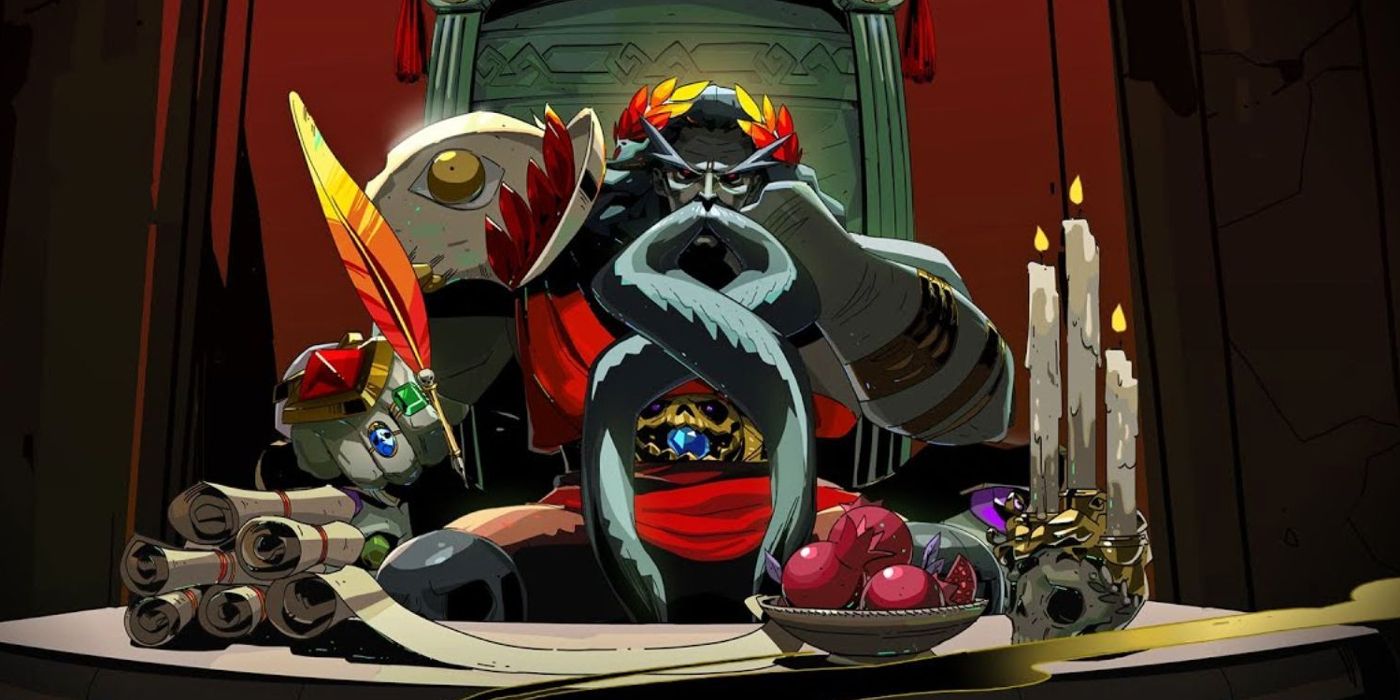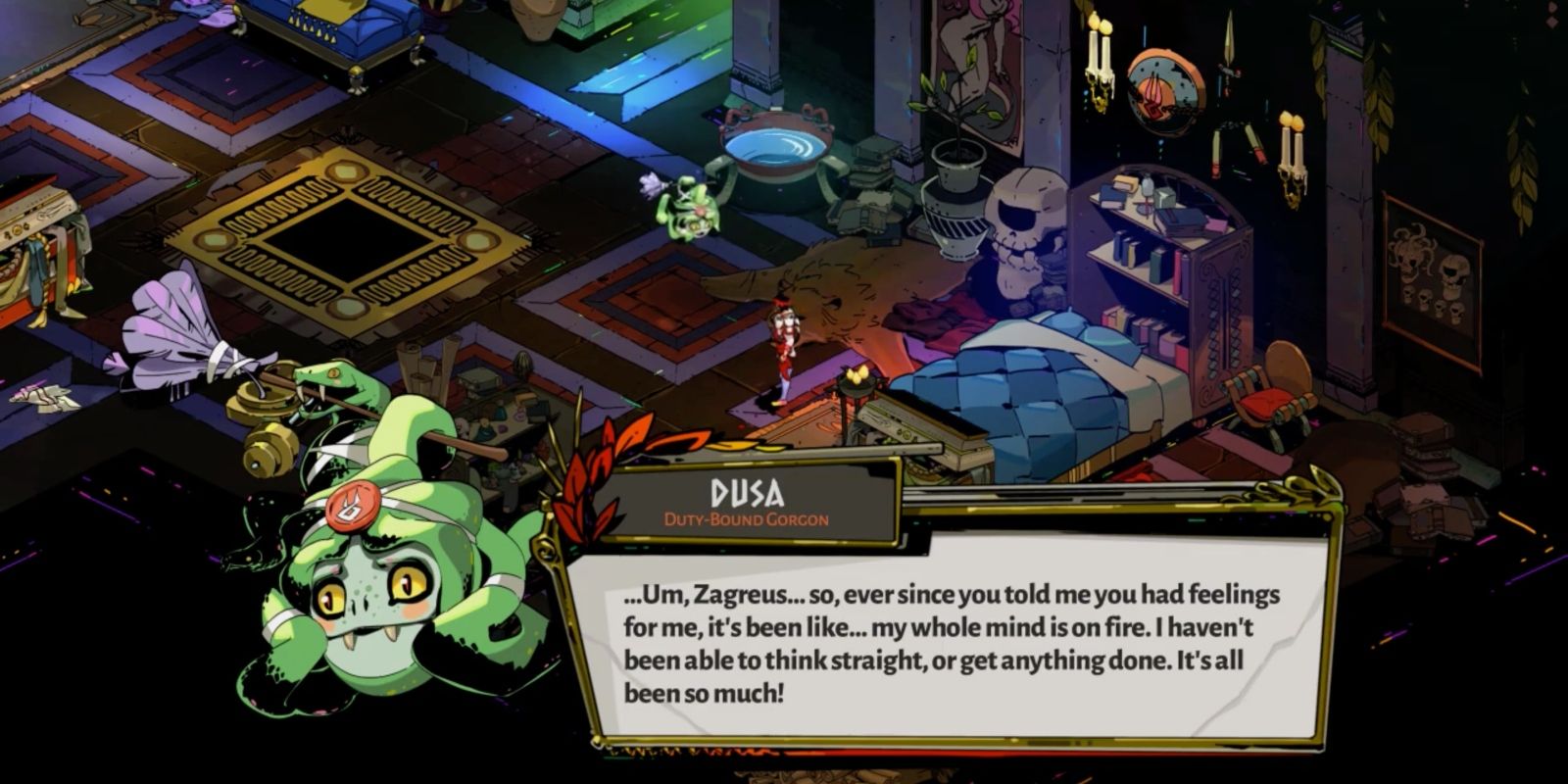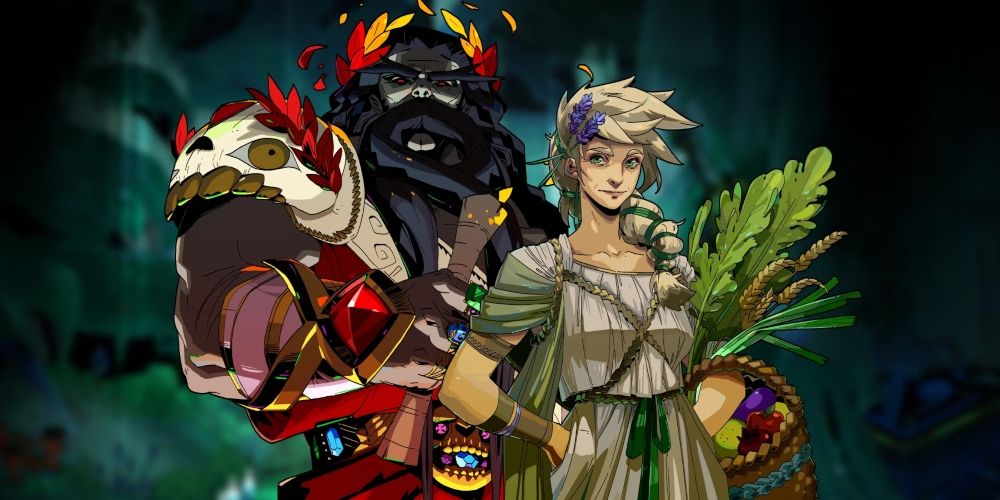Supergiant Games' roguelike Hades is a work of art. The first video game to ever win a Hugo Award, the game has been recognized for its mastery of narrative and writing. However, it's not the story and gameplay alone that make Hades great. Its compelling and beautifully constructed characters transcend character archetypes and elevate the game's world.
In a game full of mythological beings, Hades ensures that none of its characters are one-dimensional or without flaws. Instead, they are painted as complex, fully realized characters. Supergiant does this by developing them through dialogue and reflection. Woven into the story and exploring different facets of their personalities, Hades' dialogue expertly reveals the complexities of its characters.
The game itself progresses through Zagreus' failings and successes. Every new run presents a new opportunity for the reckless prince to explore dialogue with the members of the House of Hades, the Olympians, and other characters, including himself. Of course, as players learn more about the game's characters, it becomes clear that not a single one acts as only a vessel for the player to become more powerful.
Importantly, each character has their own feelings, philosophies, insecurities, and pasts with Zagreus. Of course, this plays out in conversations. One such character is Dusa, the floating head of a gorgon and acting maid of the House of Hades. Dusa is a prime example of how well Hades develops its characters. Initially presented as shy, insecure, nervous, and excitable, the game allows the player to develop their relationship with her. Of course, as the player gets to know her, the dialogue unveils the strength of her character.
She is shy and nervous but far from insecure. Rather, she is a testament to personal growth, as she rejects her old body -- who she used to be -- and embraces who she is now. The player cares about her, not because the game demands they should but because Supergiant made her so likable. Her character is multidimensional and doesn't feel like it was inserted into the game as an afterthought. She is compelling because talking with her feels like talking with a friend, and she is one of the characters who makes the player's return to the House upon defeat something to look forward to. She isn't simply the loyal follower NPC archetype -- instead, she's a bright character in what could be considered Zagreus' dim life.
On the other side of the spectrum is Zagreus' father, Hades, the Lord of the Underworld himself. Hades is compelling in a much different way than Dusa. As the main antagonist of the game, he's introduced as tyrannical, power-driven, and hateful. It is not until Zagreus receives exposition from others, and of course when he faces his father, that the player's perspective can switch.
Hades is not all that he appears. In fact, he isn't as ruthless as he's built up to be in Zagreus' mind. This is intentional -- Supergiant built this larger-than-life God of Death, only to dive into his complexities as players explore the game. Hades' attitude is one driven by fear, bitterness, love, and loss. This dichotomy of Hades is compelling because it not only builds up his character but also develops the world of the game. His desires to protect his son and his realm are reflected in the game's environments.
Hordes of enemies aim to stop Zagreus because, for his own protection, Hades doesn't want his son to escape. Tartarus, Asphodel, and Elysium mirror Hades' values and feelings: punishment for disobedience in Tartarus, anger and bitterness in Asphodel, and rewarding loyalty in Elysium. The obstacles of the Underworld become more complex when the player understands them as not just a challenge for Zagreus but as the desperate attempts of a broken and saddened man to keep his son safe from perceived dangers.
Hades is compelling because, unlike other characters, the player is meant to resent him just like Zagreus does. It's possible to understand the apparent logic behind a person's actions and still resent the wrongdoing. The interpersonal relationship between Hades and Zagreus also asks the player to address the very real concepts of forgiveness, perspective, and cycles of hurt.
Hades is a game that presents a multitude of complex, deep, and thoughtful characters. At the same time, it allows those characters to transcend the boundaries of archetypes. Even Zagreus himself, beginning his journey as a somewhat arrogant and rebellious young man, matures throughout his continuous escape attempts.
Hades creates compelling characters by treating almost each and every one with the same care that any other video game would give to the main character. In Hades, Supergiant has made it clear that other characters don't exist just for Zagreus to have some company. They each have their own complex relationships to be explored, emotions to be gauged, and thoughts to be understood. They feel like a living part of the game's world. Even Hades himself is a lot more than just blood and darkness.



